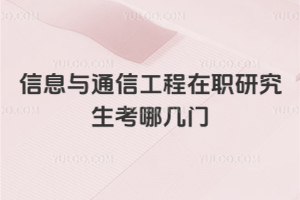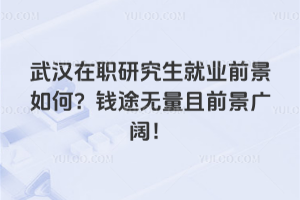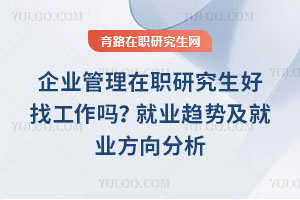- 微信公眾號(hào)

政策解讀
- 微信小程序

快速擇校

政策解讀

快速擇校
In recent years, railroads have been combining with each other, mergingintosuper systems, causing heightened concerns about monopoly. As recently as 1995, the top four railroads accounted for under 70 percent of the total ton-miles moved by rails. Next year, after a series of mergers is completed, just four railroads will control well over 90 percent of all the freight moved by major rail carriers.
Supporters of the new super systems argue that these mergers will allow for substantial cost reductions and better coordinated service. Any threat of monopoly, they argue, is removed by fierce competition from trucks. But many shippers complain that for heavy bulk commodities traveling long distances, such as coal, chemicals, and grain, trucking is too costly and the railroads therefore have them by the throat.
The vast consolidation within the rail industry means that most shippers are served by only one rail company. Railroads typically charge such "captive" shippers 20 to 30 percent more than they do when another railroad is competing for the business. Shippers who feel they are being overcharged have the right to appeal to the federal government's Surface Transportation Board for rate relief, but the process is expensive, time consuming, and will work only in truly extreme cases.
Railroads justify rate discrimination against captive shippers on the grounds that in the long run it reduces everyone's cost. If railroads charged all customers the same average rate, they argue, shippers who have the option of switching to trucks or other forms of transportation would do so, leaving remaining customers to shoulder the cost of keeping up the line. It's theory to which many economists subscribe, but in practice it often leaves railroads in the position of determining which companies will flourish and which will fail. "Do we really want railroads to be the arbiters of who wins and who loses in the marketplace?" asks Martin Bercovici, a Washington lawyer who frequently represents shipper.
Many captive shippers also worry they will soon be his with a round of huge rate increases. The railroad industry as a whole, despite its brightening fortuning fortunes, still does not earn enough to cover the cost of the capital it must invest to keep up with its surging traffic. Yet railroads continue to borrow billions to acquire one another, with Wall Street cheering them on. Consider the 2 billion bid by Norfolk Southern and CSX to acquire Conrail this year. Conrail's net railway operating income in 1996 was just million, less than half of the carrying costs of the transaction. Who's going to pay for the rest of the bill? Many captive shippers fear that they will, as Norfolk Southern and CSX increase their grip on the market.
1. According to those who support mergers railway monopoly is unlikely because .
A. cost reduction is based on competition
B. services call for cross-trade coordination
C. outside competitors will continue to exist
D. shippers will have the railway by the throat
2、What is many captive shippers' attitude towards the consolidation in the rail industry?
A. A.Indifferent.
B. Supportive.
C. Indignant.
D. Apprehensive.
3、It can be inferred from paragraph 3 that .
A. shippers will be charged less without a rival railroad
B. there will soon be only one railroad company nationwide
C. overcharged shippers are unlikely to appeal for rate relief
D. a government board ensures fair play in railway business
4. The word "arbiters" (line 6, paragraph 4)most probably refers to those .
A. who work as coordinators
B. who function as judges
C. who supervise transactions
D. who determine the price
5. According to the text, the cost increase in the rail industry is mainly caused by .
A. the continuing acquisition
B. the growing traffic
C. the cheering Wall Street
D. the shrinking market
參考答案:C D C B A
聯(lián)考須知:2011在職聯(lián)考科目 考試時(shí)間 ♦考場守則及違規(guī)處理 ♦資格審查 ♦錄取工作
復(fù)習(xí)指導(dǎo):在職聯(lián)考備考專題 ♦在職聯(lián)考?xì)v年真題 ♦如何利用真題 ♦ 如何更有效備考
考試大綱:聯(lián)考英語大綱解析 ♦會(huì)計(jì)綜合大綱 ♦ GCT數(shù)學(xué)大綱 ♦法碩考試大綱 ♦更多
特別聲明:①凡本網(wǎng)注明稿件來源為"原創(chuàng)"的,轉(zhuǎn)載必須注明"稿件來源:育路網(wǎng)",違者將依法追究責(zé)任;
②部分稿件來源于網(wǎng)絡(luò),如有侵權(quán),請聯(lián)系我們溝通解決。

信息與通信工程在職研究生若通過同等學(xué)力申碩方式,入學(xué)無需考試。申碩階段考試一般考外語(如英語、法語等)和專業(yè)課(涵蓋信號(hào)與系統(tǒng)、通信原理等)。考試通過標(biāo)準(zhǔn)為及格...

電氣工程在職研究生若通過同等學(xué)力申碩方式,學(xué)費(fèi)一年在1.4萬-1.79萬元左右(學(xué)制多為2年)。如華北電力大學(xué)學(xué)費(fèi)3萬元,平均一年1.5萬元;河北工業(yè)大學(xué)學(xué)費(fèi)2...

武漢在職研究生就業(yè)前景良好,錢景也頗為可觀。同等學(xué)力申碩入學(xué)門檻低,畢業(yè)后學(xué)位證受認(rèn)可,利于晉升漲薪;非全日制研究生學(xué)歷學(xué)位雙證在考公、國企招聘等中優(yōu)勢明顯。不...

本文匯總北京多所高校在職研究生招生簡章,為職場人士提供全面報(bào)考指南。深入解析招生政策、報(bào)考條件及學(xué)習(xí)優(yōu)勢,幫助您把握職業(yè)發(fā)展機(jī)遇。錯(cuò)過招生信息可能影響晉升機(jī)會(huì),...

在職醫(yī)生報(bào)考醫(yī)學(xué)在職研究生需全面了解報(bào)考流程和條件。報(bào)考流程包括選擇院校、在線報(bào)名、提交材料、參加考試等步驟,需關(guān)注各階段時(shí)間節(jié)點(diǎn)。報(bào)考條件涉及醫(yī)學(xué)相關(guān)本科學(xué)歷...

企業(yè)管理在職研究生好找工作嗎?是否好找工作,取決于多種因素。數(shù)字化使管理能力迭代,行業(yè)需求分化,核心能力升級(jí)。其就業(yè)有政策與市場認(rèn)可等優(yōu)勢,院校、經(jīng)驗(yàn)與學(xué)歷匹配...
在職研究生
入學(xué)考試
在職研究生
有用嗎
在職研究生
如何報(bào)考
在職研究生
報(bào)考流程
在職研究生
報(bào)名條件
在職研究生
學(xué)費(fèi)一覽表
在職研究生
考哪些科目
在職研究生
怎么報(bào)名
在職研究生
一年考幾次
評論0
“無需登錄,可直接評論...”